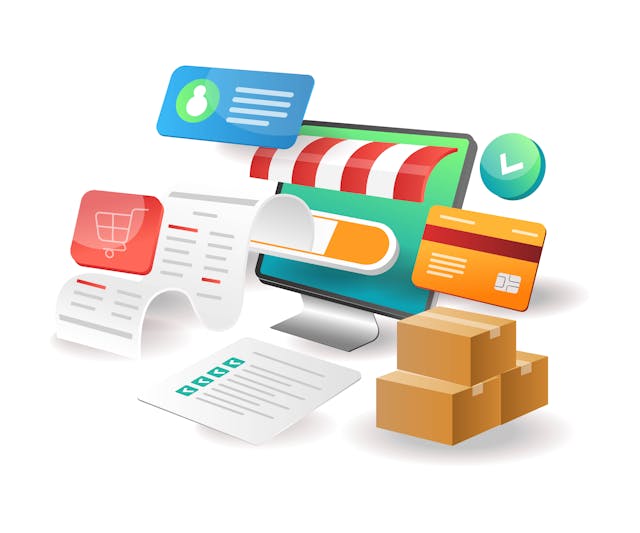What is GDPR and how GDPR impacts digital marketing?
GDPR is a wide range of data protection reform, that empowers individuals who live in the European Union to control, how their personal data is been collected, and used by businesses, across the globe. GDPR is a very important privacy protection regulation to know if you are dealing with EU citizen's data in any form. GDPR implemented across the EU on May 25, 2018.
In this article, you will learn exactly, what is GDPR, what does it mean to your business, how to fulfill GDPR compliance in your online website or e-commerce store and how could GDPR impact your digital marketing strategy?
What is GDPR?
The General Data Protection Regulation (GDPR) is an important European legislative framework that protects the collection and usage of EU consumer data by companies. The GDPR defines the rules for data management, the rights of the consumers, and the penalty details. The GDPR is all about how businesses should collect and use EU citizen's data online.
What does GDPR mean to businesses based outside the EU?
It does not matter whether your business based out in India or United States, If your business provides products or services to the EU individuals or If you monitor the behaviors, collect IP addresses of EU citizens online, then you must be aware of GDPR and ensure your business is fulfilling GDPR compliance. Because GDPR has an extra-territorial effect, which means that even if your business is set outside the European Union (EU), as long as your business process the EU individual's personal data you are still be caught by the regulations.
For example, you are having a blog page, which has the newsletter subscription form to collect visitor's names, and email addresses, also your blog might get traffic from European Union (EU), then you stand to be compliant with GDPR.
Here I have put together some of the major points based on my research and interpretations of the GDPR legal legislation. Please note I am not a trained professional in GDPR legislation or a lawyer. However, I have organized major points together to help you understand GDPR better.
How to fulfill GDPR compliance on your website?
Organize your data
Data is a piece of information collected from individuals, in turn, used to identify them, like name, email address, phone number, gender, location, IP address, etc.
One of the main components in GDPR is customers or subscribers can ask businesses anytime to provide the stored data to them. So it is necessary to organize data storage well to retrieve details accurately and completely whenever required. Also, the customer has the power to ask the organization to delete the data of them at any time. If you have the data well organized, then it is easy for you to process the requests on time.
Ensure your business has the data retrieval or removal process in place, it helps even if you ever encountered by GDPR compliance.
Make sure the data is secure
GDPR requires to have data stored in a protected environment, in case the data breach happened you need to notify the appropriate supervisory authority within 72 hours after having become aware of it.
Businesses should have a security measure procedures in place to mitigate risk or data breach. Educate all your employees, partners and vendors to ensure all are aware of GDPR compliance and your data protection procedures.
Organizations must be maintaining data protection, consent details, data usage, storage proofs, risk measurement procedures, data retrieval process to meet GDPR compliance. If the data breach happened, because for the non-compliance than the company may face the fine of EUR20 million or 4% of the company’s yearly global income, whichever amount is greater.
Collect only required data
Ensure to collect only required information from customers or subscribers, also let them know the reason for getting that information. Don't collect or store information which may need for your future projects.
GDPR (General Data Protection Regulation) is an important European legislative framework that protects the collection and usage of EU consumer's data by organizations.
Be Transparent and Use clear language
Ensure to be transparent with your online visitors. Explain clearly, what information you are collecting from them, how will you be using that information, what are the security measures you have taken to preserve their information, whether their information will be shared with anyone else for data mining or analytical purposes?
Use clear language in your privacy policy statement, cookies policy, make it as simple as possible for people to read and understand. In case you collected information from an individual for a specific purpose and later decided to use it for some other reason, then that is not allowed under GDPR. If you are using it for a different purpose, you must get consent from an individual before using their information in any way.
Positively Opt-In
Include a consent checkbox in all your forms if you are collecting any personal information from individuals. You should not use pre-checked consent boxes. Allow individuals to comfortably opt-in for your products or services. Inform your customers why are you collecting this information and how will you use this information? Let your customers or subscribers be comfortable when they are opt-in for your services or newsletter.
Make it Easy to Opt-Out
In your login or subscription form provide an option to opt-out. Ensure the Opt-out choice included in your emails. Make the opt-out process simple, your users should not be routed more than one page for an opt-out from their subscription. Importantly once the individual opt-out from an email or newsletter ensure not to send them any marketing or promotions.
How could GDPR impact digital marketing and SEO?
Email marketing and other digital marketing practices are having a direct impact since the implementation of GDPR. However, GDPR helps individuals to have full control over opt-in and opt-out for emails or any digital communications. Also, individuals can request for retrieval or deletion of their information stored in any form whether digital format or hard copy by the organizations.
How GDPR affects Email Marketing?
As an email marketer, you must get freely given, specific, informed, and unambiguous consent from individuals before sending any communication, whether it can be for promotion or marketing notification. Importantly you must store the opt-in consent in an organized manner to retrieve anytime if required. Also, you must have an Opt-out process in place, like all of your emails, must contain an Opt-out choice and it should not be a complicated process for individuals.
How GDPR affects Google Analytics?
In case you are using Google analytics then they are the data processor for your website. Google has altered some of its data processing settings. For example, Google analytics introduced a data retention procedure where you can choose to period for retaining data for your analytics metrics. Google has set the data retention period to 26 months by default, but you have the option to set it for never expire if you are a US-based organization and you required to maintain the data.
Ensure you are not sending any personally identifiable information (PII) to Google Analytics, Read more here.
Ensure to update your privacy policy fully in compliance with GDPR, in case you are using Google ad features you need to include the data collection and usage verbiages in your privacy policy.
Impact on SEO
There is no direct implication or announcement on GDPR compliance affecting SEO. However, Google or other search engines might implement GDPR compliance as one of the ranking parameters in the future. We all aware that the user experience is one of the SEO ranking factors, GDPR cookies consent, Subscription form consent box, and other privacy policy notification pop-ups, will affect the user experience.
Conclusion
GDPR helps individual to take control of their personal information is being collected, used and shared by businesses. GDPR is a significant change in data collection, usage, and maintenance policy. To ensure your business is in GDPR compliance talk to your legal consultant.
Please note - In this article, I have briefly discussed the major implication of GDPR compliance based on my research and interpretations. Please do refer the complete regulation content for the total understanding of GDPR legislation.

Rajarajachozhan
Business Owner
An energetic entrepreneur with 12 years of corporate experience in the field of brokerage operations and functions. A Data Science Aspirant - Business Analytics and Business Intelligence postgraduate professional from a reputed B-School in India. His passion for Data Visualization, Web and social media Analytics helped him to become a learner, speaker, and writer in the space of SEO, Digital Marketing, and UI, UX designs.




